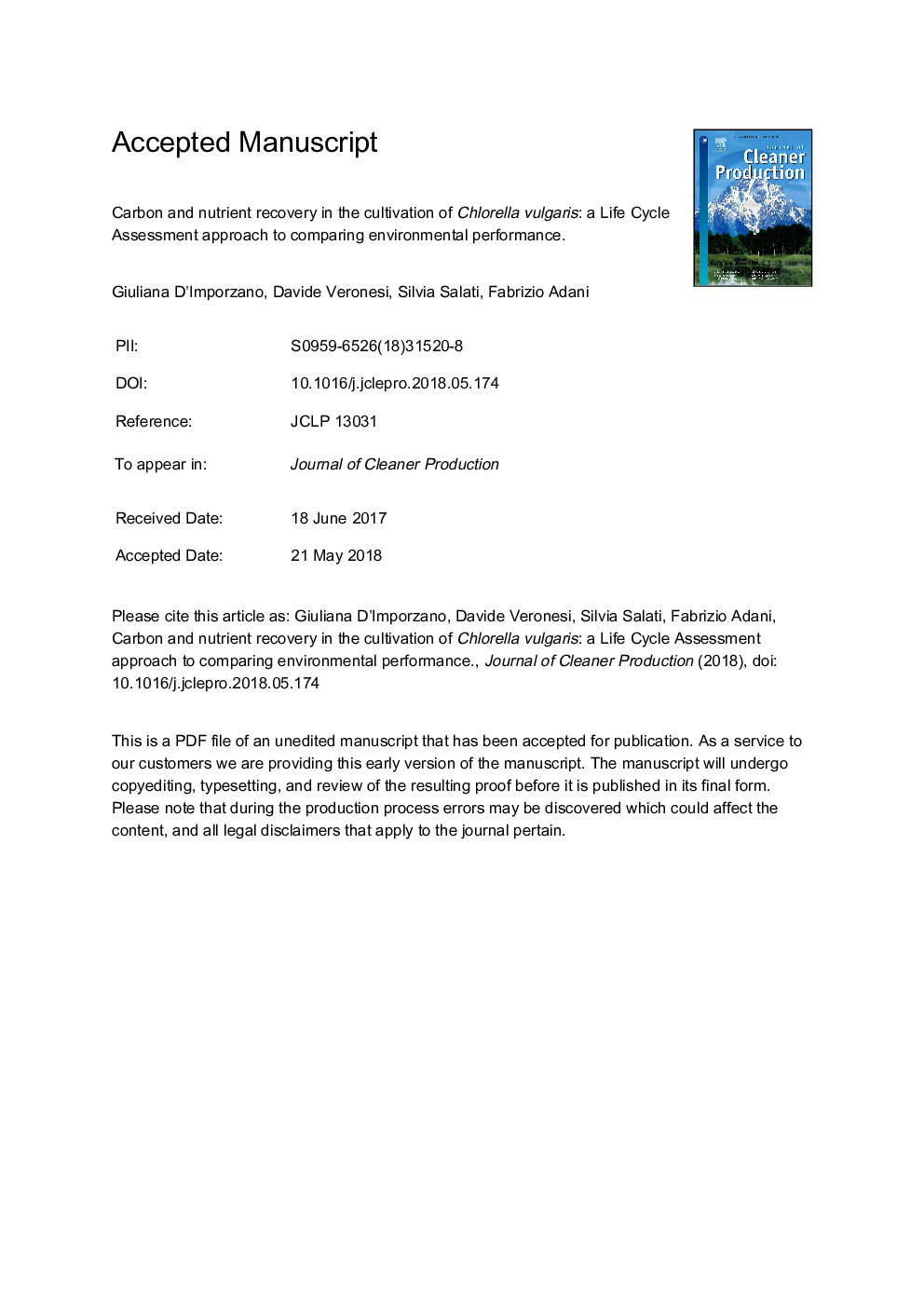| Article ID | Journal | Published Year | Pages | File Type |
|---|---|---|---|---|
| 8094388 | Journal of Cleaner Production | 2018 | 28 Pages |
Abstract
Microalgae cultivation is arousing interest for its ability to provide biomass for food, feed and energy. Microalgae are more efficient in converting solar energy into biomass than terrestrial plants, and microalgae cultivated in a mixotrophic mode showed a higher biomass productivity. This work aimed to evaluate the environmental impacts of the cultivation of microalgae in autotrophy and mixotrophy and to define under what conditions mixotrophic cultivation gives the best environmental performance. To make this comparison, primary data of Chlorella vulgaris cultivation in autotrophy and mixotrophy were used. The scenarios considered were autotrophy (Scenario 1); mixotrophic cultivation on cheese whey, (Scenario 2); and mixotrophic cultivation using dairy wastewater (cheese wastewater) (Scenario 3). In addition, since commercial nitrogen fertilizers are one of the major contributors to the environmental impact of Chlorella production, two other scenarios were modelled: autotrophy on recovered nitrogen from digestate (Scenario 4) and mixotrophic culture on recovered nitrogen and carbon (Scenario 5). The mixotrophic growth of microalgae was shown to be an environmentally effective process (i.e. it showed a decrease of the impact categories), when the organic carbon provided had no other allocation and could be considered free of a cost burden. The cultivation of microalgae on recovered nitrogen and recovered carbon was found to decrease the CO2 emission by almost 60% and similar decreases were obtained for the other impact categories in comparison with autotrophy. A value of CO2 emission equal to 1.05â¯kg CO2 eq. kgâ1 of microalgae was achieved for Scenario 5, and a decrease of more than 50% was assessed for the impact categories: Marine eutrophication, Human toxicity, Freshwater ecotoxicity, Marine ecotoxicity and Fossil fuel depletion.
Related Topics
Physical Sciences and Engineering
Energy
Renewable Energy, Sustainability and the Environment
Authors
Giuliana D'Imporzano, Davide Veronesi, Silvia Salati, Fabrizio Adani,
